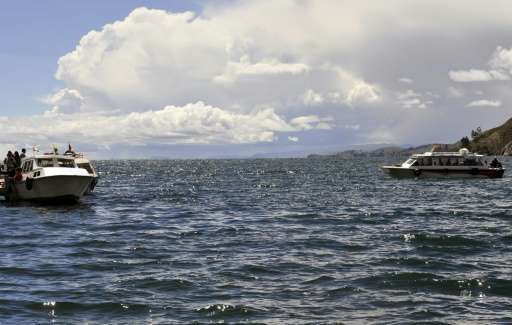Lake Titicaca, which is the highest in the world, at an altitude of 3,800 meters (12,470 feet) above sea level, provides a habitat for a number of frogs, birds and fish, including two species that have almost been wiped out
Bolivia and Peru agreed to provide more than $500 million towards cleaning up Lake Titicaca, whose polluted waters are home to some animals nearing extinction, a Bolivian environment official said.
The deal, which is meant to improve the lake's biodiversity, includes environmental management and recovery through to 2025.
Lake Titicaca, which is the highest in the world, at an altitude of 3,800 meters (12,470 feet) above sea level, provides a habitat for a number of frogs, birds and fish, including two species that have almost been wiped out.
Bolivia's Environment and Water Minister Alexandra Moreira and her Peruvian counterpart Manuel Pulgar signed the agreement during a public event.
"For the short term we have a limit of $117 million and for the long term $400 million," said Moreira's advisor Sergio Arispe.
"It's a logistical matter we are trying to manage through 2025," he said.
Part of the waste in the lake is generated by the Bolivian city of El Alto, near La Paz, which is home to about 800,000 people.
Peru's minister stressed that the two countries are "already taking concrete actions such as investing in water treatment plants to address the main problems the lake is facing."
© 2016 AFP























